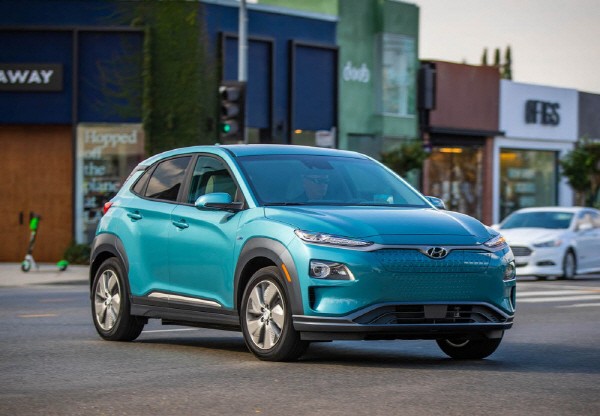Purchased 'Recalled' Kona battery for 16 billion KRW
Securing the scale of 26,699 units in domestic supply
Replacing rare earth imports, fostering strategic business
Forecast of impact on initial ma
GS E&C will secure 26,699 Kona EV batteries recalled by Hyundai Motor Company and enter the battery recycling (recycling) market in earnest. They will strategically foster a recycling business that extracts various rare earth metals that have been dependent on imports.

This deal is expected to have a significant impact in the domestic battery recycling marketto its many standards such as prices.
According to the electric vehicle industry on the 30th, Hyundai Motor sold 26,699 domestic batteries to GS E&C out of the 82,000 Kona Electric units recalled in February.
Kona Electric vehicle has a battery with a capacity of 64 kWh. The transaction price for both sides is about 600,000 KRW per vehicle, for a total of 16 billion KRW. This is the first time that a price for a large quantity has been confirmed among domestic recycled battery transactions.
The price of this dealwasabout 5% compared to the price of a new battery. In addition to GS E&C, Hyundai Motor sold about 30,000 units in Europe to SungEel HiTech.
The total capacity of the Kona battery secured by GS E&C is about 1.7GWh, which can be used by about 800 households (based on four people) for one month.
According to the terms of the contract, Hyundai Motor Company, GS E&C, and SungEel Hitech do not use them as reusable batteries such as energy storage systems (ESS), but only dispose of them and carry out recycling business.
GS E&C will start the recycling battery business in earnest.
The basic framework of the business is to reproduce valuable metals such as nickel, cobalt, lithium, and manganese through processes such as disassembling battery packs, discharging batteries, sorting, crushing, and melting. As it is a new business, everything from preparing process manuals such as collection and crushing to commercialization of metal products such as cobalt is the first. Various metals extracted and produced will be re-sold to secondary battery manufacturers and material companies to generate profits. Additional revenue can be generated by recycling by-products such as aluminum and iron.
A GS E&C official said “As part of a preemptive investment to develop a technology for safe dismantling of batteries after use.The domestic volume was purchased from Enerma, a subsidiary invested by GS E&C as a new business. Any information related to the business partner cannot be disclosed to the outside such as contractual relation and prices.”
GS E&C announced an investment plan for secondary battery recycling and related businesses in January last year. By 2022, 100 billion KRW will be invested to build a facility capable of producing 4,500 tons of valuable metals such as nickel, cobalt, lithium, and manganese per year. Currently, a dedicated recycling plant is being built in Pohang, Gyeongsangbuk-do.
Enerma, a subsidiary established by GS E&C in October last year, will take charge of the business. In December of the same year, GS E&C transferred the right to use the lithium-ion battery recycling process technology to Enerma.
Meanwhile, SungEel Hitech completed the second recycling plant for electric vehicle batteries with an annual capacity of 50,000 tons in Batonyterenye, Hungary, in July. Combined with the existing first plant, it can produce 60,000 tons of minerals and materials per year. The plant can process at least 20,000 EV batteries per year.
By Staff Reporter Taejun Park (gaius@etnews.com)